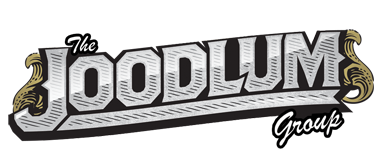Another day on the Internet, another excuse to wonder if and when technology is going to turn the landscape of interpersonal human relationships into some kind of unrecognizable Garden of Simulated Delights. Another chance to speculate whether the world of the future will be populated by people wantonly having sex with robots and other people whispering smutty things to Siri. A day looms on the horizon, maybe, in which everyone will exist like rhesus monkeys trapped in a sterile lab of loneliness and isolation, clinging to our devices and yet feeling no comfort.
What's the alternative, though? Is there some way that technology can enhance our relationships, making them easier, more exciting and more straightforward? It definitely seems likely: it's fairly inarguable that technology already is changing the way we interact romantically with one another — and the ways in which we process, capture, cherish and recover from those interactions — for better and for worse. So, what does the future hold? Well, according to the trend-spotting shop Sparks & Honey, a lot of things. (One of those things is robot sex.)
In collaboration with the Museum of Sex, Sparks & Honey has released a report on the future of sex and relationships. It examines "three key currents of change that are shaping modern relationship" — technology, increasing public acceptance of nontraditional relationships and sexual practices, and the mainstreaming of kink — and extrapolates the Future of Sex and Love from there. Some of the prognostics are fairly predictable — the report, for instance, predicts that flirting apps and relationship rating apps will proliferate and become commonplace: "Sex and relationships are one of the fertile new frontiers for tracking and measurement," reads the report. "Big [bedroom] data from sensors and apps, such as SpreadSheets, provide insights into your 'performance' and why relationships work or fail."
I was, at first, kind of skeptical — I don't know of anyone who seriously applies data analytics to their sex or dating life. The consensus of my peers and colleagues is that Lulu, the foremost dating ranking app, is creepy, and I've only ever heard of people using SpreadSheets on assignment. I myself once downloaded a dating app with the intent of writing about it, but it was so boring and useless that I had absolutely nothing to say. (Side note: while using the app, I was supposed to be rewarded with a grilled cheese because I had showed affection well. I was never given a grilled cheese.) There's a reason that the age-old adage "It's not you, it's me" exists: because breakups are hard, and people aren't good at telling one another what, exactly, went wrong. Expressing you dissatisfaction openly can be daunting, and I have a hard time believing that some kind of relationship or sex rating app would change that. When I told Sparks & Honey CEO Terry Young about my misgivings, he responded that quantifying experiences is already becoming ubiquitous — we rate our drivers, our masseuses, our dining experiences, etc. — and there's no reason data analytics wouldn't take the leap to the realm of romance.
Story Via jezebel

